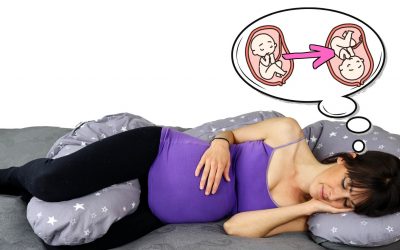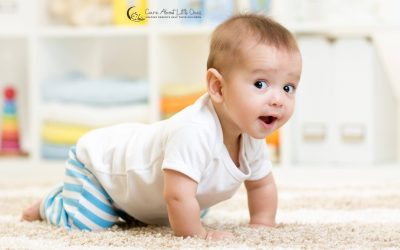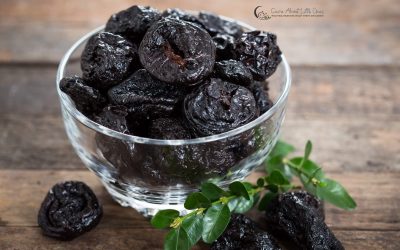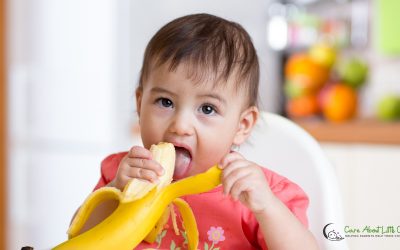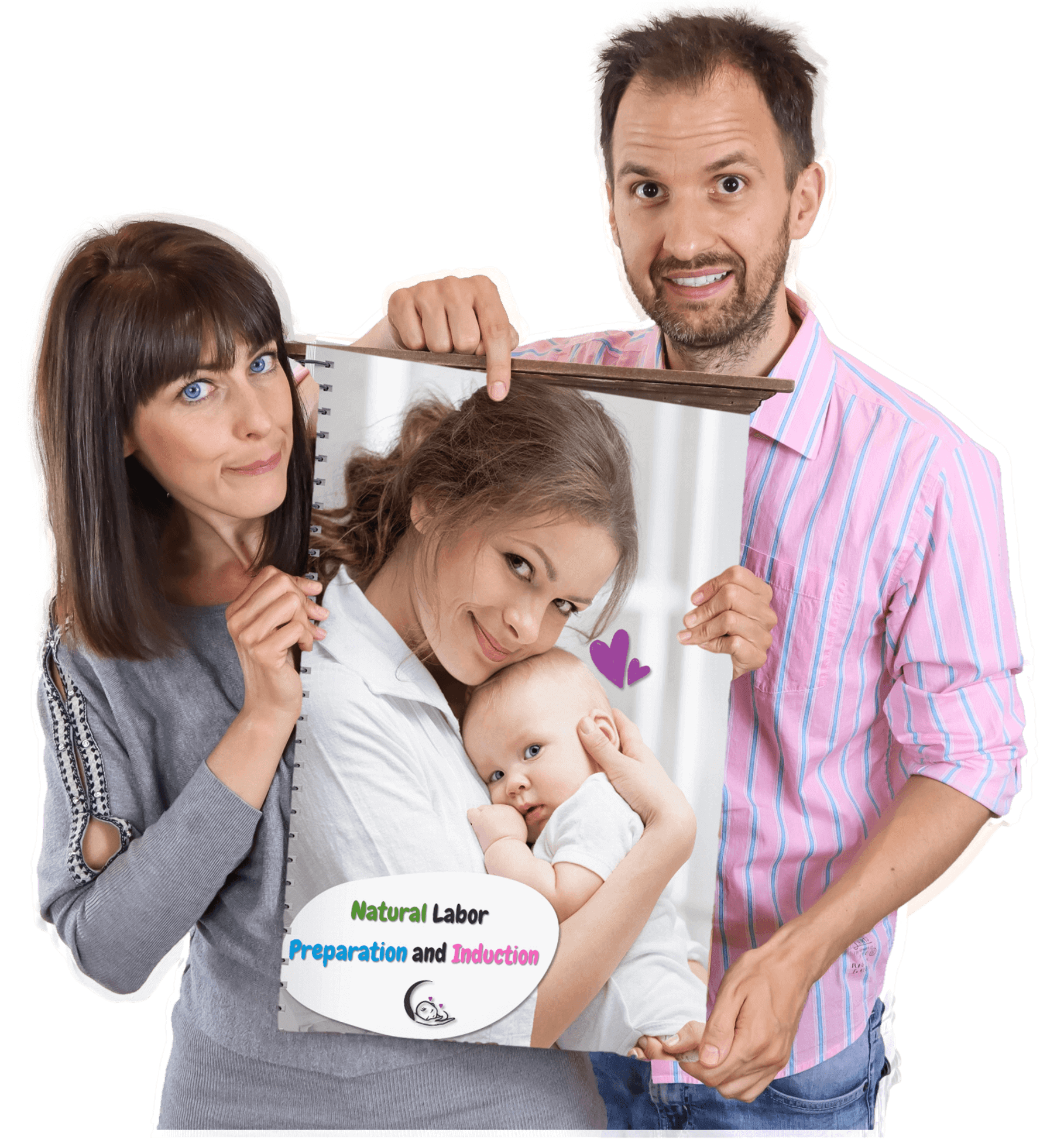12 Ways To Prevent Colic In Babies During Pregnancy

Table Of Contents
1 Avoid smoking during pregnancy!
2 Be careful with Nicotine Replacement Therapies during pregnancy!
3 Avoid passive smoking during pregnancy!
4 Avoid stress during pregnancy!
5 Seek help if you have emotional problems!
7 Come to terms with childhood traumata!
8 Tell the father of your baby to stand his man!
9 Be careful with iron supplementation during pregnancy!
10 Lose weight before getting pregnant!
11 Avoid cheese during pregnancy!
12 Seek treatment for your migraine!
When I was in charge of the Maternity Acupuncture Clinic at the Whittington Hospital in London, the number 1 fear of pregnant women was that their baby could develop colic. Therefore, they asked me, if there are things that they can do during pregnancy to prevent baby colic. So, I did some research and found some very interesting facts.
So, is there anything an expecting mother can do in order to prevent colic in babies during pregnancy? First of all, avoid active and passive exposure to tobacco smoke and nicotine in general! Next, deal with stress, emotional problems, anxiety and childhood traumata! Also, be careful what you eat! And finally, keep in mind that the father has a bigger influence on baby colic than you may think.
Most parents deal with baby colic once the baby is born. However, at that point, it could already be too late! Given the great burden of baby colic for the parents and the whole family, it could pay off to take action during pregnancy. So, read on if you want to know exactly what you can do during pregnancy to prevent colic in babies according to science!
1 Avoid Smoking During Pregnancy!
Smoking during pregnancy is one of only very few topics in science, which – for a change – is not controversial. Ask whoever practitioner you want, they will all recommend to avoid smoking while you are pregnant. That’s because the negative effects of smoking on a fetus have been well documented in countless scientific studies!
One of those negative effects could be developing baby colic according to a scientific study from 2001 (1). The scientists compared babies of non-smoking women with babies of women who were smoking during pregnancy.
They found that the babies of the smoking group had a 2.1 times higher risk of developing colic in their early life. That was for mothers who smoked 15 cigarettes and more per day during pregnancy.
A later study (2008), including 1625 mothers, came to the same conclusion (2). The scientists found that the odds of baby colic are 1.74 higher if the mother is smoking during pregnancy.
In other words, both studies find that smoking during pregnancy seems to increase the risk of babies to develop colic. Therefore, avoid smoking during pregnancy if you want to decrease the likelihood of your baby to develop colic!
2 Be Careful With Nicotine Replacement Therapies During Pregnancy!
Avoid smoking during pregnancy?
What seems so easy for a non-smoking woman can actually be a great burden for a smoking mother. The temptation to smoke even during pregnancy is big!
Of course, it is by no means that those mothers care less about the well-being of their baby. But there is a reason why they call it “addiction”.
For many of them, avoiding smoking during pregnancy is just not possible. That is why many expecting mothers start Nicotine Replacement Therapies (NRT) during pregnancy.
Such therapies make use of products like nicotine patches, nasal sprays, inhalers etc. These tools give small, steady doses of nicotine to help stop cravings (3).
Naturally, one may think that such therapies are a great alternative to smoking. But read on:
A study involving 63.128 Danish babies investigated, if pre-birth exposure to nicotine can increase the likelihood of baby colic (4).
Yet again, they found that the odds of developing colic are 1.3 greater if the mother is smoking during pregnancy. So far, nothing new.
However, surprisingly, they also found that the odds of babies to develop colic were even greater (1.6) when their mother was on NRT during pregnancy!
So, it seems that nicotine itself is the problem that promotes colic in babies.
Therefore, avoiding smoking during pregnancy may not be good enough! If you really want to decrease the likelihood of your baby to develop colic, ban nicotine entirely from your life!
3 Avoid Passive Smoking During Pregnancy!
Definition: What is environmental tobacco smoke?
Scientists compared the birth weight of babies of non-smoking women to the weight of babies of women who were smoking during pregnancy. Indeed, they found that the birth weight of the babies of smoking women was lower by 119 grams.
So far, no surprise, since the negative effects of smoking have been well documented in countless studies.
However, the actual surprise is this:
If non-smoking mothers were heavily exposed to environmental smoke during pregnancy, their babies’ birth weight was lower by 189 grams on average compared to babies of non-smoking mothers who were not exposed to environmental smoke.
Even more surprising, their birth weight was also 70 grams lower compared to babies of mothers who were smoking during pregnancy!
So, why should you care about the birth weight of your baby?
It’s simple! Scientists found that babies with a lower birth weight are more likely to develop colic (6).
The take-away is this:
It seems that it is not only sufficient to avoid nicotine during pregnancy! You could also be required to eliminate any exposure to environmental tobacco smoke at home or at work! Both could help decrease the likelihood of your baby to develop colic according to scientists!
Looking for ways to help your baby with colic?
Check out my Shonishin Baby Colic Massage Course and learn how to help your little one!
4 Avoid Stress During Pregnancy!
Effect Of Stress During Pregnancy On Baby Colic
A study from 2003 investigated if stress during late pregnancy can cause more crying and fussing in babies up to 20 weeks of age (7).
Indeed, the scientists found a trend for babies of mothers who were highly stressed during pregnancy to show more crying and fussing. Crying and fussing was particularly severe during the first 7 weeks of the babies’ lives.
Side Note: How was "stress" measured in this study?
Effect Of “Life Stress” During Pregnancy On Baby Colic
In 2006, another study investigated a similar subject. The study included 86 pregnant mothers (8). The scientists analyzed if “life stress” during pregnancy can cause “excessive crying” in babies during the first six months of their life.
Side Note: What is “life stress”?
They too found that babies of mothers with higher levels of stress were crying more / were more fussy during the first 6 months. Crying and fussing was particularly severe in babies between 3 to 6 months of age.
Please note: technically, “excessive crying” alone may not necessarily qualify as “colic”. However, I still decided to include this study.
Effect Of Work-Related Stress On Colic
Definition: What are non-manual jobs?
Note that by “non-manual”, the scientists mean jobs which involve using your mind, rather than your hands or physical strength.
Personally, I neither like the word “non-manual”, nor its definition! I cannot think of a single job which would not require you to use your mind! Can you?
5 Seek Help If You Have Emotional Problems!
The Effect Of General Emotional Problems On Baby Colic
Scientists investigated if emotional problems of a mother are linked to excessive crying in her baby later on (10).
Again, “excessive crying” may technically not necessarily qualify as “colic”. However, excessive crying is a certainly a symptom of colic. So let’s have a look at their findings!
They found that certain emotional problems of an expecting mother can increase the likelihood of excessive crying in babies. Such problems are:
- Depressive symptoms
- Anxiety related to the pregnancy
- Parenting stress
- Job strain
The odds of a baby to cry excessively were between 1.69 and 2.23 greater if the mother was facing any of those problems. Even worse: if the mother was exposed to 3 or 4 risk factors at the same time, the odds were almost 5 times greater.
Likewise, other scientists found that there is a threefold increased risk of developing colic if the mother is under “psychosocial distress” during pregnancy (11). By “psychological distress”, they mean behavioral, emotional or social distress.
The authors conclude that distress during pregnancy in general increases the risk to develop baby colic.
The Effect Of Anxiety On Baby Colic
A Swedish study from 2005 investigated, if anxiety during pregnancy can cause baby colic (12).
They found that high so-called “trait anxiety” of mothers during pregnancy seems to increase the risk of developing colic considerably.
The odds for babies of mothers exposed to high trait anxiety were 2.04 greater compared to babies of mothers with no such anxiety.
Side Note: What is "Trait Anxiety"?
In order to understand what “trait anxiety” means, you first need to understand the term “state anxiety”:
State anxiety represents psychological and physiological reactions related to a particular negative situation in a specific moment. For example, a woman may feel nervous during pregnancy because the estimated date of birth is getting closer and closer.
Trait anxiety, on the other hand, refers to a specific trait of personality of a person. This trait explains the differences in people who suffer from the same kind of “state anxiety” (13).
For example, woman A is nervous because she is afraid of the pain from giving birth that she is expecting. Woman B, on the other hand, is nervous simply because she is so excited to finally get to know her little baby! Both show the same kind of state anxiety, but they differ in their trait anxiety.
Overall, the scientists concluded that if expecting mothers suffer from anxiety disorders, there is a higher risk of their babies to suffer from colic.
This was also the result of a German study in 2014, which included 306 pregnant women (14). It was found that babies of mothers with anxiety disorders during pregnancy were at higher risk of excessive crying. The odds of excessive crying were threefold (3.02) if the mother suffers from anxiety.
What Can You Do If You Have Emotional Problems And/Or Anxiety?
6 Trust In Yourself!
Side Note: What is "Self-Efficacy"?
The scientists discovered that babies of mothers who were highly stressed during pregnancy cried less when their mother had high levels of self-efficacy. On the other hand, the babies of mothers with low self-efficacy had a higher likelihood of crying and fussing.
How Can That Be Explained?
As we know from previous studies, stress during pregnancy can increase the likelihood of excessive crying in babies. However, it seems that if a mother is confident about the challenges ahead, that attitude has a positive impact on her baby. In other words, high levels of self-efficacy of a mother may decrease the risk of her baby to develop colic.
The lesson for you is this:
Trust in yourself and your abilities! Keep in mind that billions of other mothers successfully managed the challenge that you are about to take on!
Accept the fact that things won’t be perfect! You will make mistakes along the way, like every other parent out there! That’s okay! Allow yourself to make mistakes! After all, you are only human! Seek professional help if you think that the challenges overwhelm you!
7 Come To Terms With Your Childhood Traumata
Side Note: What is "Cortisol"?
Of course, this study does not link childhood trauma directly to baby colic.
However, we have seen from previous studies that babies of mothers with high levels of cortisol during pregnancy (i.e. mothers with high levels of stress) are more likely to cry excessively in their early life (7).
What Can You Do?
If you went through a traumatic event during childhood, seek professional help if you have not already done so!
Luckily, in many countries, there are programs and support groups sponsored by the government. Do not hesitate to make use of such programs and groups! They are here to help and ultimately make you feel better.
Keep in mind that the beneficiaries of such actions are not only yourself, but also your baby!
8 Tell The Father Of Your Baby To Stand His Man!
It is obvious that a woman must cope with all the physical aspects of a pregnancy. However, it would be wrong to believe that the father of her baby does not have ways to support her during pregnancy. In fact, recent studies found that the father can make a huge difference!
Supporting A Pregnant Woman To Avoid Baby Colic
Side Note: What was the study all about?
Living With A Pregnant Woman To Avoid Baby Colic
Depressive Fathers Have An Impact Too
Could it be that the mental state of a father can influence the likelihood of a baby to develop colic? This is the very subject of a study by scientists from the Erasmus Medical Center in Rotterdam (19).
Interestingly, they found that depressive symptoms in fathers are a risk factor for their baby to develop colic too.
The scientists were unable to come up with an explanation for this phenomenon. However, it could be that it is caused by genetic transmission. If that’s true, unfortunately, it is something that is out of your control.
But since the scientists can only speculate about the actual reason for this phenomenon, it could pay off for the father to deal with his depressions in order to avoid colic in the baby later on.
Fathers Make A Difference
To sum up, fathers seem to have an influence on the development of colic in babies too. And that influence does not only just start once the baby is born! Therefore, tell your partner to be there for you! Not only just once the baby is born, but from the very first day of your pregnancy!
If the father of your baby suffers from depressive symptoms, he should seek professional help! Although support groups and organizations mainly focus on expecting mothers, more and more professional help is offered to daddies who need psychological care! Ask your doctor or a member of staff of the hospital in which you expect to give birth!
And finally, keep the following in mind: you will have to take care of one baby already! You don’t need an even bigger baby additionally in your household! It is important for the father of your baby to stand his man!
The moment he fathered the child, he committed to his own needs being inferior to the needs of his offspring. It is important that he remembers that!
Looking for ways to help your baby with colic?
Check out my Shonishin Baby Colic Massage Course and learn how to help your little one!
9 Be Careful With Iron Supplementation During Pregnancy!
A recent study compared babies of mothers with and without iron supplementation during pregnancy (20). Interestingly, they found that the babies of mothers with iron supplementation had a higher risk of suffering from colic.
If you are on iron supplementation, make sure that the GP who prescribed the supplementation is aware of your pregnancy! Ask him/her for advice on how you should proceed given the fact that you are pregnant!
However, never just cut down your dose or refuse to continue the therapy by yourself!
Keep in mind that there is most likely a good reason for your GP to prescribe iron supplementation in the first place! Discontinuing the supplementation could cause negative effects for yourself and also for your baby, if your body urgently needs iron!
10 Lose Weight Before Getting Pregnant!
The same study (20) found that mothers of colic babies had a higher pre-pregnancy body mass index (BMI) on average (25.38). In comparison, the average BMI of the mothers of non-colicky babies was only 23.83.
Therefore, one possible way to prevent colic in babies could be losing weight before getting pregnant!
11 Avoid Cheese During Pregnancy!
Moreover, the same study found a link between the “perinatal” consumption of cheese by the mother and the development of colic in her baby (20).
Note that the term “perinatal” is related to the time (usually weeks) immediately before and after birth. Accordingly, it seems that it does not only pay off to avoid cheese during the weeks right before pregnancy, but also during the weeks after birth.
Please note that it is unclear why the consumption of cheese by a mother would lead to colic in babies. However, if there is the slightest chance that it helps avoiding colic in babies, why not giving it a try?
12 Seek Treatment For Your Migraines!
What Can You Do?
Yes, You Can Have A C-Section!
Many expecting mothers have asked me, if their baby is likely to develop colic if they have a C-section. Frankly, I don’t know the answer. However, I did some research. And I found a study which investigated if babies delivered by C-section are likely to develop colic pain (23).
The scientists who conducted the study did not find a link between Caesarean delivery and colic pain in babies.
To sum up, C-sections do not seem to increase the risk of developing colic in babies.
Summary
Here Is What You Can Do:
Avoid active and passive exposure to tobacco smoke, and nicotine in general, during pregnancy! Also, keep in mind that nicotine replacement therapies may not be the solution to the problem. That is, because the problem is not only the tobacco, but the nicotine too!
Next, avoid stress during pregnancy! If avoiding stress is impossible, keep in mind that self-efficacy or the trust in your own abilities that you will be able to cope with the great challenge of having a baby could still prevent colic in your baby!
If you have emotional problems, suffer from anxiety or have gone through childhood traumata, seek professional help!
Moreover, tell the father of your baby to be there for you! Bearing the physical challenge of having a baby is your burden to carry. However, this does not mean that your partner cannot do everything in his power to support you throughout this difficult period!
If the father suffers from depression, tell him to seek professional help! It could help decrease the likelihood of your baby to suffer from colic.
Furthermore, be careful with iron supplementation during pregnancy and the consumption of cheese during the last couple of weeks of your pregnancy. Both could promote colic in your baby.
Also, if your body mass index is above average, you may want to lose weight before getting pregnant!
And finally, if you or the father of your child suffer from migraine, go seek treatment! Migraine in parents could cause infant colic (which could be an early manifestation of migraine).
Whatever your decision, keep in mind that even if you follow the advice from this blog post, there is still no guarantee that your baby won’t develop colic. There are just too many potential factors which could cause baby colic.
If you have done your best and your baby still develops colic, don’t be discouraged or disappointed! The good thing about baby colic is this: it won’t last forever!
Sources
(1) Søndergaard, C., et al. (2001): Smoking during pregnancy and infantile colic. In: Pediatrics. 2001 Aug; 108 (2): 342-6.
(2) Canivet, CA., et al. (2008): Infantile colic, maternal smoking and infant feeding at 5 weeks of age. In: Scandinavian Journal of Public Health. 2008 May; 36 (3): 284-91.
(3) National Cancer Institute: Accessed on 05/08/2019: https://www.cancer.gov/publications/dictionaries/cancer-terms/def/nicotine-replacement-therapy
(4) Milidou, I., et al. (2012): Nicotine replacement therapy during pregnancy and infantile colic in the offspring. In: Pediatrics. 2012 Mar; 129 (3): e652-8.
(5) Hrubá, D., Kachlík P. (2000): Influence of maternal active and passive smoking during pregnancy on birthweight in newborns. In: Central European Journal of Public Health. 2000 Nov; 8 (4):2 49-52.
(6) Meyer JE, Thaler MM. (1971): Colic in low birth weight infants. In: The American Journal of Diseases of Children. 1971 Jul; 122 (1): 25-7.
(7) De Weerth C., Van Hees Y., Buitelaar JK. (2003): Prenatal maternal cortisol levels and infant behavior during the first 5 months. In: Early Human Development. 2003 Nov; 74 (2): 139-51.
(8) Wurmser, H., et al. (2006): Association between life stress during pregnancy and infant crying in the first six months postpartum: a prospective longitudinal study. In: Early Human Development. 2006 May; 82 (5): 341-9.
(9) Canivet, C. (2004): Higher risk of colic in infants of nonmanual employee mothers with a demanding work situation in pregnancy. In: International Journal of Behavioral Medicine. 2004; 11 (1): 37-47.
(10) Van der Wal MF., Van Eijsden M., Bonsel GJ. (2007): Stress and emotional problems during pregnancy and excessive infant crying. In: Journal of Developmental and Behavioral Pediatrics. 2007 Dec; 28 (6): 431-7.
(11) Søndergaard, C., et al. (2003): Psychosocial distress during pregnancy and the risk of infantile colic: a follow-up study. In: Acta Paediatrica. 2003 Jul; 92 (7): 811-6.
(12) Canivet, CA., et al. (2005): Infantile colic and the role of trait anxiety during pregnancy in relation to psychosocial and socioeconomic factors. In: Scandinavian Journal of Public Health. 2005; 33 (1): 26-34.
(13) Caldeira, Pllyana Leal, et al (2017): Trait vs. state anxiety in different threatening situations. In: Trends in Psychiatry and Psychotherapy. 2017, Jul/Sep; 39 (3).
(14) Petzoldt, J. et al. (2014): Maternal anxiety disorders predict excessive infant crying: a prospective longitudinal study. In: Archives of Disease in Childhood. 2014 Sep; 99 (9): 800-6.
(15) Bolten, MI., Fink, NS and Stadler, C. (2012): Maternal self-efficacy reduces the impact of prenatal stress on infant’s crying behavior. In: The Journal of Pediatrics. 2012 Jul; 161 (1): 104-9.
(16) Ackerman, C. (2019): What is Self-Efficacy Theory in Psychology? Definition & Examples. Accessed on 05/08/2019. https://positivepsychologyprogram.com/self-efficacy/.
(17) Swales, DA., et al. (2018): Exposure to traumatic events in childhood predicts cortisol production among high risk pregnant women. In: Biological Psychology. 2018 Nov; 139: 186-192.
(18) Alexander, CP., et al. (2017): Fathers make a difference: positive relationships with mother and baby in relation to infant colic. In: Child Care Health Development. 2017 Sep; 43 (5): 687-696.
(19) Van den Berg, MP. (2009): Paternal depressive symptoms during pregnancy are related to excessive infant crying. In: Pediatrics. 2009 Jul; 124 (1): e96-103.
(20) Kaymaz, N. (2015): Prenatal maternal risk factors for infantile colic. In: Nursing Children and Young People. 2015 Dec; 27 (10): 32-8.
(21) Gelfand, AA., Thomas, KC, Goadsby, PJ. (2012): Before the headache: infant colic as an early life expression of migraine. In: Neurology. 2012 Sep 25; 79 (13): 1392-6.
(22) Romanello, S. (2013): Association between childhood migraine and history of infantile colic. In: The Journal of the American Medical Association. 2013 Apr 17; 309 (15): 1607-12.
(23) Laubereau, B. (2004): Caesarean section and gastrointestinal symptoms, atopic dermatitis, and sensitisation during the first year of life. In: Archives of Disease in Childhood. 2004 Nov; 89 (11): 993-7.
Medical Disclaimer: The information on this page is not intended to diagnose, prevent, mitigate, treat or cure any disease! It is not personal medical advice. We recommend that you ask a doctor whenver you are looking for medical advice!
ABOUT THE AUTHOR
Nathalie Kaufmann
Nathalie is a pregnancy and birth Consultant and a TCM Therapist with almost 20 years of experience in Traditional Chinese Medicine (TCM), acupuncture, reflexology, Shonishin baby massage techniques, Western and Eastern massage techniques (including TUINA), as well as herbal medicine and nutrition.
She has worked in hospitals across London and was Head of the Maternity Acupuncture Clinic at the Whittington hospital in London. Today, Nathalie runs her own practice in London and helps pregnant women with pregnancy- and birth-related issues. She also specializes in alternative treatments for babies and children.
RELATED BABY MASSAGE COURSES
Looking for ways to help your baby with colic?
Check out my Shonishin Baby Colic Massage Course and learn how to help your little one!
RELATED POSTS
Best Sleeping Position To Turn A Breech Baby (with Pictures)
Most babies turn at night. But unfortunately, not every sleeping position provides the baby with enough room to turn. As a result, many babies remain in a breech presentation. Luckily though, sleeping in the right position can support baby turn head down.So, what is...
Signs Of Constipation In Babies (0-24 Months)
This blogpost informs about the signs of constipation in babies, given a baby’s diet and age. It also informs about what’s normal in terms of her bowel movements.
Home Remedies For Baby Constipation (Guide 0-24 Months)
This blogpost informs about home remedies for baby constipation! It also helps parents to pick the right remedy, given the fact that not each remedy is equally efficient and suitable given a baby’s age.
What Causes Constipation in Babies?
This blogpost informs about the 8 most important factors which can cause constipation in babies. We analyze each factor from a scientific and practical point of view.
Best First Baby Foods To Avoid Digestive Issues (4-24 Months)
Choosing the best first baby foods is based on three factors. This blogpost informs about what these factors are. It also provides a list of best first baby foods depending on your baby’s age. Finally, it serves as a foods guide for babies up to 24 months of age in order to avoid digestive issues.
Baby Foods That Help With Constipation (0-24 Months)
This blog post informs about foods that babies can eat depending on their age in order to prevent and/or relieve constipation.
7 Reasons Why Breastfed Babies Can Get Colic
This blog post summaries the 7 reasons why exclusively breastfed babies can get colic. It also gives practical advice on what to do in order to prevent baby colic.
Anti-Colic Diets For Breastfeeding Mothers: Do They Work?
This blog post summarizes what we currently know about the effect of a breastfeeding mother’s on baby colic. Moreover, it educates about what foods not to eat while breastfeeding a colic baby (according to scientists) and what mothers need to consider before making a decision if they should restrict their diet or not.
Baby Constipation And Bananas: When Can Babies Eat Them?
This blog post informs about the circumstances under which bananas can cause constipation in babies and when they can actually relieve it.

